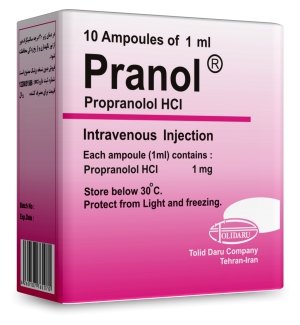
- Seen : 1615 View
This medicine is prescribed for the treatment of your current illness, so do not use it in similar cases or recommend it to others.
Talk with your doctor before taking your medicine:
If you have a history of allergy to medicines, foods, colors, or bites of insects
If you take other medications
If there are other diseases
If any surgery is needed
Read the following for proper use.
Take the medication according to your doctor's instructions.
Avoid sudden discontinuation of the drug even if you feel well.
If you forget to take a dose, remember to take it as soon as you remember, unless you wait four hours until the next dose, and do not double the amount after the next dose.
For better absorption, take the medicine after meals.
Take care of the following while taking the medicine:
Tell your doctor if you have any complications such as difficult breathing, especially when lying down, night coughing and swollen hands and feet, heart rate, dizziness, depression, skin rash, fever, sore throat, abnormal bleeding or bruising.
Take caution when it comes to drowsiness, dizziness and blurred vision when doing things that require concentration and vigilance.
This medicine may affect the symptoms of low blood sugar or alter blood glucose levels.
If you need any surgery such as dental surgery, inform your doctor about taking the drug.
The effects of this drug on the elderly are more severe.
The status of blood pressure, heart rate and blood glucose concentration in diabetic patients during the course of treatment.
Consumption in pregnancy and lactation:
The use of this drug during pregnancy and lactation is only allowed when the need for it is fully specified and the benefits are fully outweighed by possible harm to the baby or baby.
Warnings:
In case of asthma, diabetes mellitus, non-allergic bronchitis, hyperthyroid glands, depression, heart failure, history of allergy, myasthenia grave, phenoclomatostaemia, psoriasis, and liver and kidney dysfunction, often with caution.
Take this medication 48 hours before surgery and get anesthetic drug.
In the elderly, modulation may be required in the amount of the drug.
If it is necessary to discontinue it after prolonged use, it should be discontinued gradually and at least three days, preferably within two weeks.
Dosage adjustment is required if barbiturates, non-steroidal anti-inflammatory drugs, cimetidine, contraceptives, nicotine and nitroglycerine are taken.
Propranolol may alter the effects of sulfonylureas, urea and insulin
Amount and method of administration:
The dosage of each medicine is determined by the physician according to the patient's condition and type of illness, but the usual dose of the drug is as follows
Common Adult Dose:
Treatment for angina: 320-80 mg / day, divided into 4-3 doses
Treatment for cardiopulmonary arrhythmia: 10-30 mg 3 or 4 times a day, starting to be in accordance with the patient's patient's need and tolerance. Via injection of intravenous injection of 1 to 3 mg with a maximum speed of 1 mg per minute and, if necessary, each 2 hours is repeated.
Blood pressure treatment: 40 mg twice daily - The dose begins to gradually increase and according to the patient's need and tolerance, and may increase to 640 mg per day.
Stenosis due to hypothyroidism under the aorta: 20-40 mg 3 or 4 times a day, which gradually increases with the patient's need and tolerance.
Myocardial Infarction (MI): 240-180 mg / day divided in 4-2 doses
Phoenochromasmatoma: 40-20 mg 3-4 times a day
Prophylactic vascular headache, including migraine: Initially, 20 mg 4 times a day, which gradually increases to 240 mg / day as needed and tolerated.
Primary tremor treatment: 40 mg twice daily, which gradually increases to 160-120 mg / day as needed and tolerates. The maximum daily dose is 320 mg.
Anxiety treatment: 10-80 mg 90-30 minutes before getting into anxiety conditions.
Treatment of thyrotoxicosis: 10-40 mg three or four times a day, which gradually increases as the patient needs and tolerates.
The usual dose in pediatric patients:
Initially, daily, 1-5 / 0 mg per kg body weight divided into 2 or 4 doses of 2-4 mg / kg body weight divided into 2 doses.
As intraarticular arrhythmia, injections of 0.01 to 0.1 mg / kg of body weight at a maximum rate of 1 mg / min are repeated every 8 to 6 hours, if needed.
side effects:
Each drug, along with the desired therapeutic effects, may also cause some unwanted effects, although not all of these side effects are seen in one person, but:
Side effects that require medical attention include:
Decreased heart rate, bronchospasm (difficult breathing or wheezing), congestive heart failure (knee and toe, face and leg, shortness of breath), depression, decreased peripheral circulation (cold hands and feet), skin rash, arrhythmia, pain Back and chest pain, dizziness, especially in the elderly, hallucinations and liver toxicity.
Side effects that require medical attention in the event of an outbreak or interference with the patient include: decreased libido, sleep disturbance, anxiety, mood changes, diarrhea, nausea, vomiting, stomach upset.
Side effects that require medical attention when taking out the drug include:
Arrhythmia, chills, headache, weakness, chest pain, shortness of breath
Poisoning:
If you accidentally use more than the recommended dose, see your doctor.
Pharmaceutical forms:
Tablet: 10 mg, 20 mg, 40 mg
Amp: 1mg / ml
Maintenance:
Keep the medicine out of the reach of children.
From taking medications
Saler Company Information










